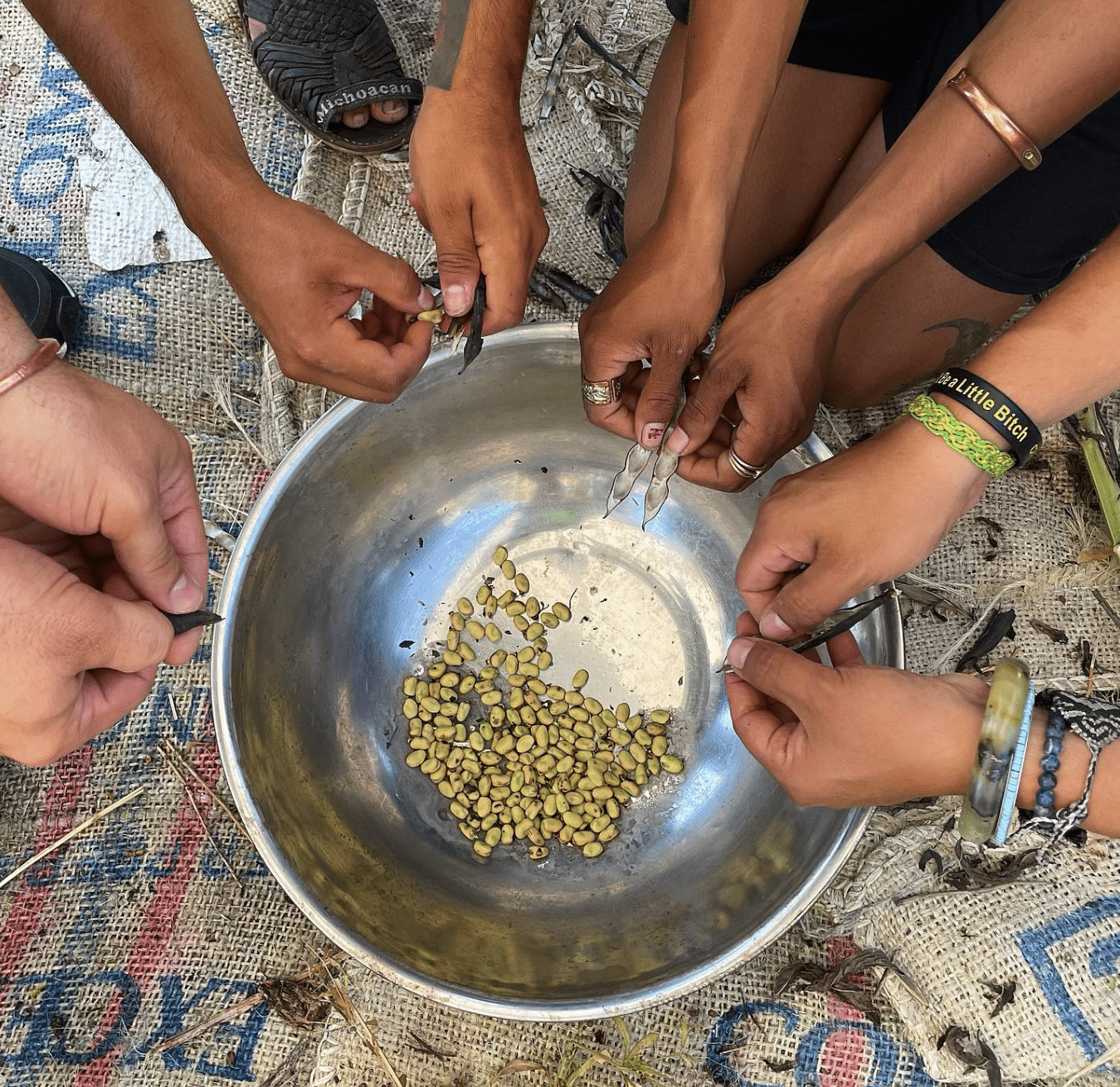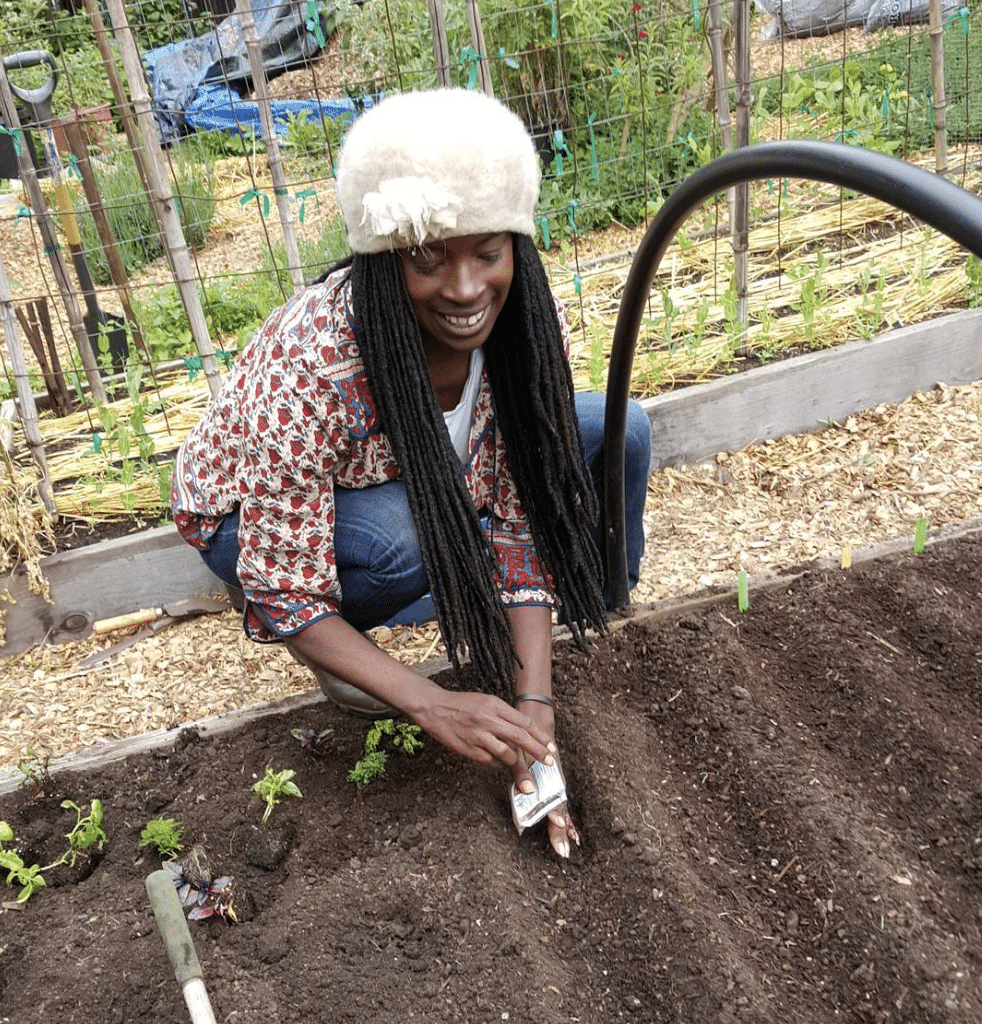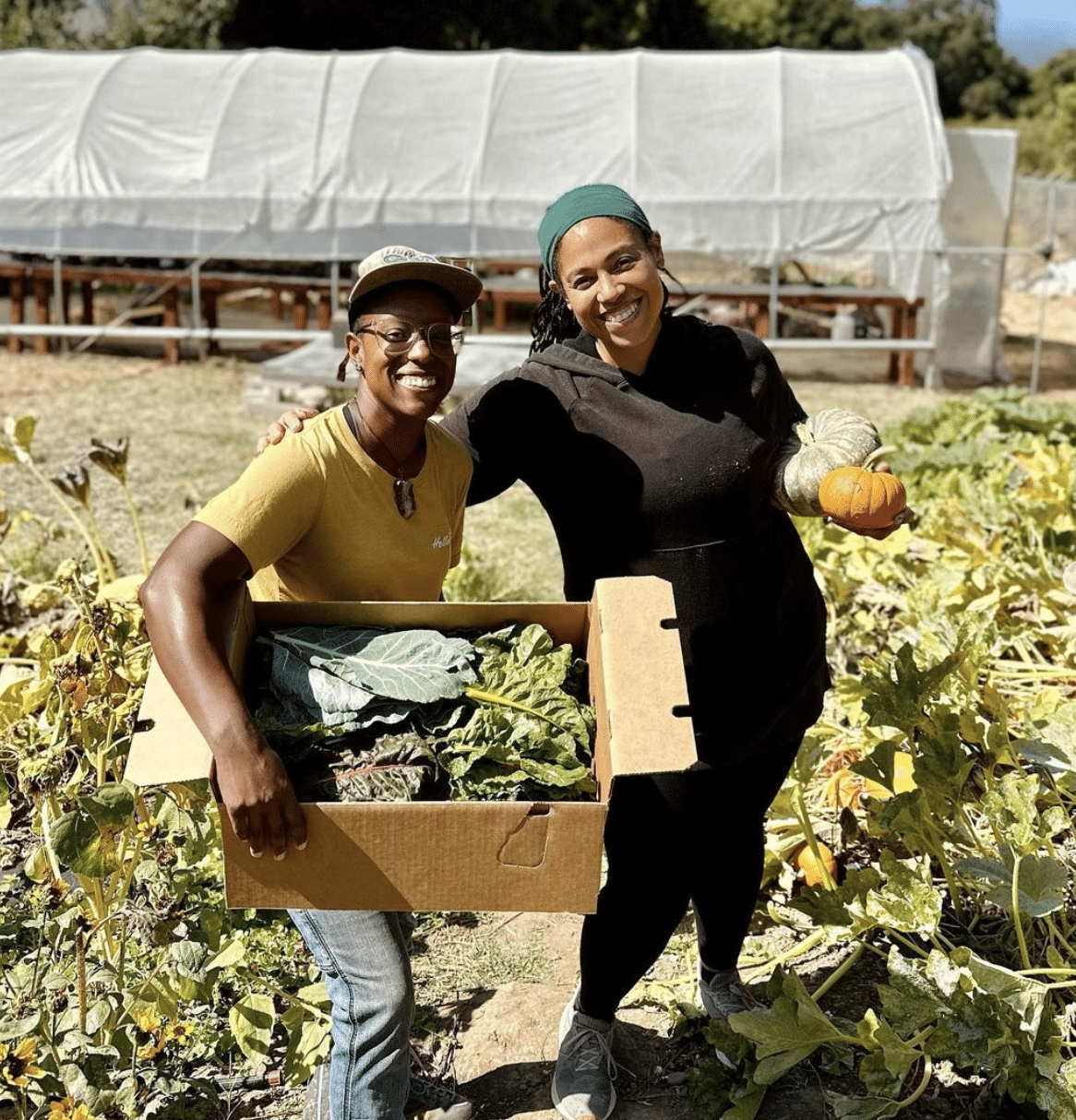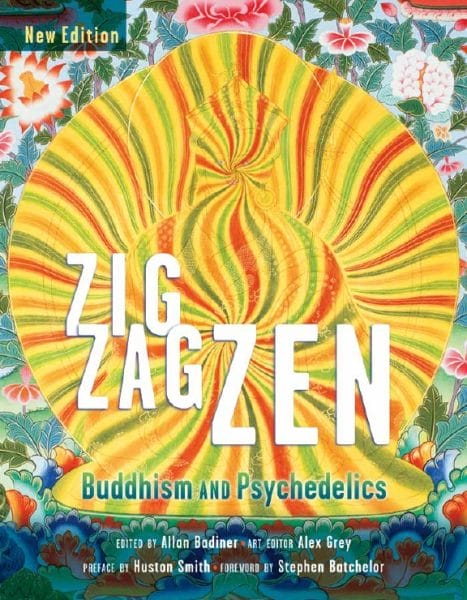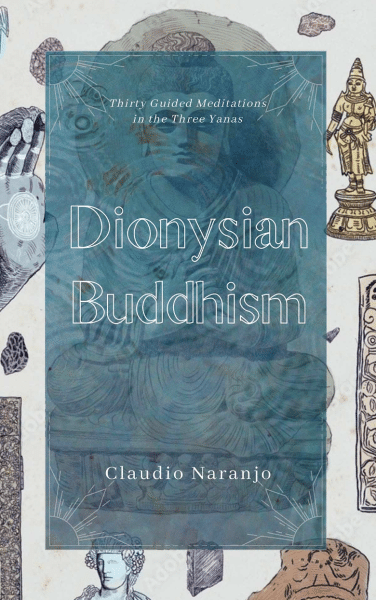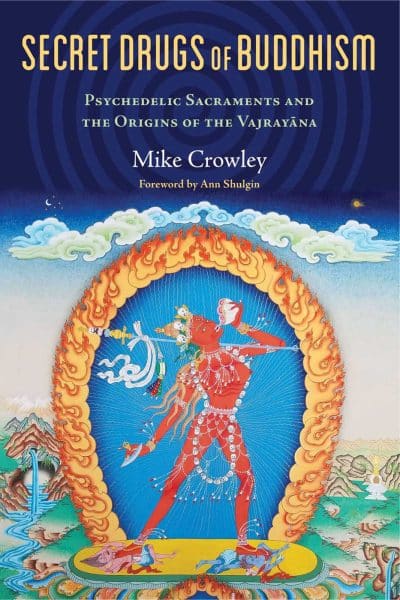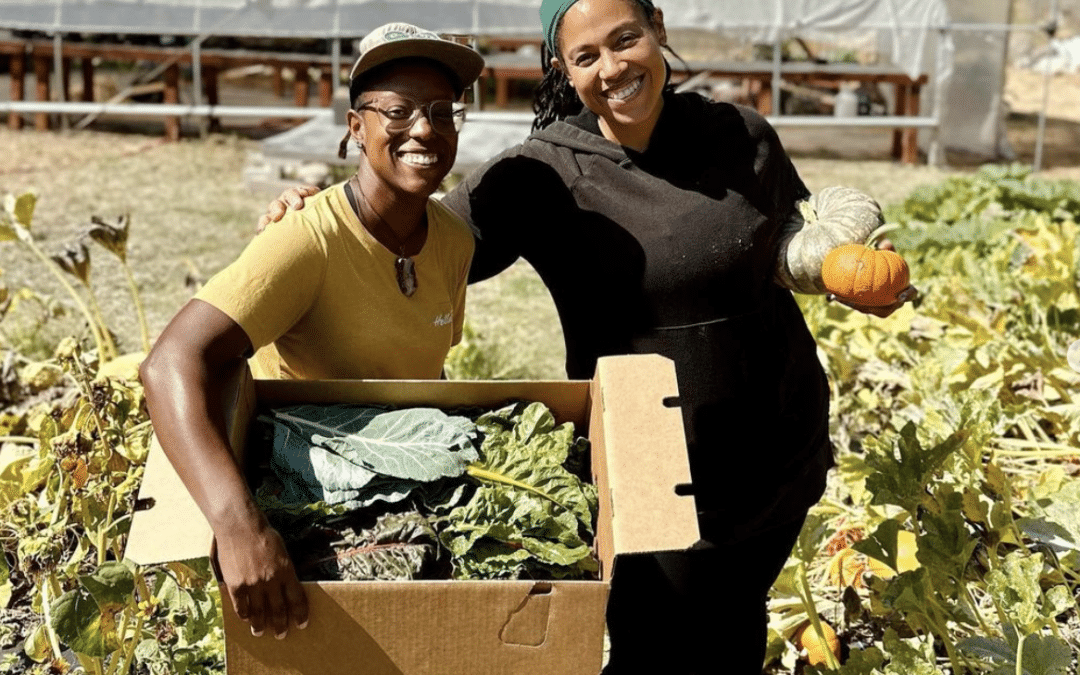
Celebrating Black Changemakers
This Black History Month, we’re celebrating Black changemakers in the space of ecology, land stewardship and permaculture who are taking the sustainable world by storm with their incredible dedication to creating a more holistic world for all.
This year we have a special focus by honoring the remarkable women who are making waves in the ecology realm. Their passion, dedication, and innovative approaches to environmental stewardship have brought much needed guidance into the ever growing field of ecological and off-grid living. From sustainable farming to climate advocacy, community gardening to environmental education, each woman has demonstrated the transformative power of intersectional environmentalism. Their efforts not only inspire positive change but also challenge us to rethink our relationship with the Earth and each other, not only their expertise but also a deep connection to the plants and wisdom passed down by their wise ancestors.
It’s essential to acknowledge that Black History encompasses so much more than can be contained in a single month. The richness and diversity of cultures worldwide have profoundly shaped our world, and to truly appreciate this, we need more than just a few weeks of recognition.
This list is by no means comprehensive, and will no doubt keep growing with time. From trailblazing environmental activists to scientists pioneers in sustainable solutions, we are happy to highlight these wonderful individuals who are innovating pathways for a more sustainable and liveable future.
Celebrating Black Changemakers in Ecology & Sustainability
Black Girl Environmentalist
Black Girl Environmentalist is a national organization with a focused mission: to confront the challenges of access and retention within the climate movement for Black girls, women, and gender-expansive individuals. Our commitment lies in empowering emerging leaders of color in the climate arena, ensuring that Black girls, women, and gender-expansive people have the resources and support necessary to thrive in climate leadership roles. They envision a future where everyone has the opportunity to contribute to and shape a representative climate movement that reflects the diversity and experiences of all communities. Together, they strive to build a more inclusive and equitable environmental landscape, one where every voice is valued and heard.
Wanjiku “Wawa” Gatheru
Wanjiku “Wawa” Gatheru, a Kenyan-American climate storyteller, is dedicated to making climate communication more empathetic and accessible. Leveraging her experience as a Rhodes Scholar and youth climate activist, Wawa’s mission is to shape a climate movement that truly reflects the diversity of humanity. It was there that she discovered the vital intersection of environmental justice and the contributions of Black women throughout history. Inspired by this newfound knowledge, Wawa embarked on a mission to empower Black girls, women, and non-binary individuals in environmental professions through her organization, Black Girl Environmentalist. At just 24 years old, she represents the next generation of environmental leaders, driven by a deep understanding of the urgent need for inclusivity and community engagement in the fight for environmental justice.
Black Star Farmers
Black Star Farmers (BSF) is a dynamic coalition committed to the radical reclamation of land and the pursuit of food sovereignty. Our collective comprises individuals from diverse backgrounds and identities united in the mission to challenge systemic inequities. Through practices of land stewardship, mutual aid initiatives, educational outreach, and direct action, BSF endeavours to cultivate a future where communities have agency over their food systems and land resources. Our work is rooted in the principles of justice, equity, and sustainability, as they strive to create a more equitable and resilient agricultural landscape for all.
Black Girl Farms
Black Girl Farms recognizes and honors the profound interconnectedness that exists within the land. Rooted in this understanding, Brown Girl Farms is dedicated to growing practices that embody and celebrate these interconnections. Drawing inspiration from African Indigenous Agroecology traditions, our farm embraces holistic approaches that prioritize sustainability, resilience, and community stewardship. By weaving these ancestral practices into the fabric of our operations, they aim to cultivate a deeper harmony with the land, honoring its wisdom and nurturing its abundance for generations to come.
Indy Officinalis
Indy Officinalis, the captivating host of National Geographic’s “Farm Dreamers,” brings a unique blend of passion, expertise, and charisma to the world of sustainable agriculture. With an unwavering commitment to ecological farming practices and a deep reverence for the land, Indy guides viewers on a transformative journey through the heart of the farming experience. Through captivating storytelling and hands-on exploration, she illuminates the joys and challenges of cultivating food in harmony with nature, inspiring audiences to reconnect with the land and embrace a more sustainable way of life. As an advocate for regenerative agriculture and community empowerment, Indy’s work transcends television screens, leaving a lasting impact on viewers and igniting a movement towards a healthier, more resilient food system.
Leah Thomas
Leah is a trailblazing force in the environmental justice movement, having founded and launched the non-profit Intersectional Environmentalist in 2020. This groundbreaking platform serves as a beacon for advocating environmental justice, providing educational resources on intersectional environmentalism, and promoting inclusivity and accessibility within environmental education and movements. Through her innovative initiatives, including London’s first Black EcoFeminist Summit, Earth Sessions climate justice concerts, and a grassroots book tour spanning over 70 stops, Leah has demonstrated her unwavering commitment to amplifying marginalized voices and driving meaningful change. Her seminal work extends to her book, “The Intersectional Environmentalist: How to Dismantle Systems of Oppression to Protect People + Planet,” which sheds light on the interconnectedness of environmentalism, racism, and privilege. As the founder of the eco-lifestyle blog @greengirlleah, Leah leverages her extensive experience and vast audience to inspire action and foster dialogue.
Black Girl Country Living
Meet Hillarie, the heart and soul behind Black Girl Country Living. With a deep reverence for Mama Nature, Hillarie finds solace and healing in her embrace. Through Black Girl Country Living, she invites others to join her on a journey of reconnection with the natural world. Through her stories and experiences, Hillarie aims to inspire and empower others to rediscover the beauty and tranquility of nature, fostering a deeper connection to the Earth and all its wonders. Join Hillarie as she embarks on a path of exploration, discovery, and inner growth, guided by the wisdom and healing power of the natural world.
Compost Fairy
Meet Crystal Walker, also known as the Compost Fairy! With a passion for composting that spans over four years, Crystal is a dedicated educator and consultant on all things compost. Armed with personal research and hands-on experience, Crystal has honed her expertise in curating nutrient-dense compost through trial and error. As an Oklahoma County Master Composter and Master Gardener, she brings a wealth of knowledge to her work. For the past three years, Crystal has been on a mission to spread awareness about the importance of composting and its transformative impact on soil health and food cultivation. With her guidance, she aims to empower individuals to return their waste to the Earth, fostering a symbiotic relationship with nature and nurturing vibrant, healthy ecosystems. Whether through educational workshops or one-on-one consultations, Crystal is committed to cultivating a greener, more sustainable world, one compost bin at a time.
Poppy Okotcha
Poppy Okotcha is an ecological enthusiast, home grower, forager, and dedicated cook whose passion lies in inspiring reconnection to the land and the living world through the narrative of food and herbs. With a holistic approach encompassing cultivation, processing, and cooking, Poppy’s journey embodies a deep commitment to fostering sustainable relationships with the Earth. She believes in the transformative power of gardens, which not only yield nutrient-dense harvests and healing herbs but also impart invaluable lessons on living harmoniously with nature. Through her work, Poppy endeavors to cultivate spaces where communities can gather, learn, and progress towards greater food sovereignty and a more equitable food system.
If you are looking to up your eco game, check out some of our ecology and sustainable titles for some inspiration: Regenerative Landscaper, Social Forestry and Agroecology and Regenerative Agriculture.


